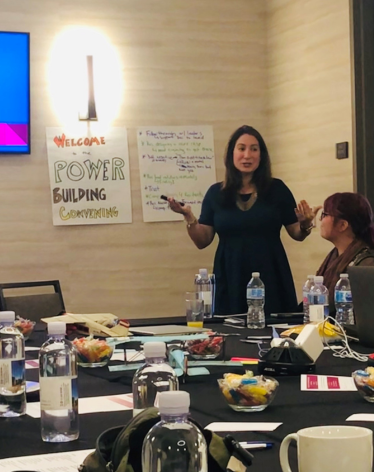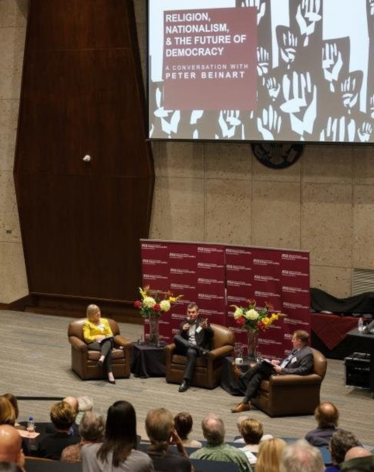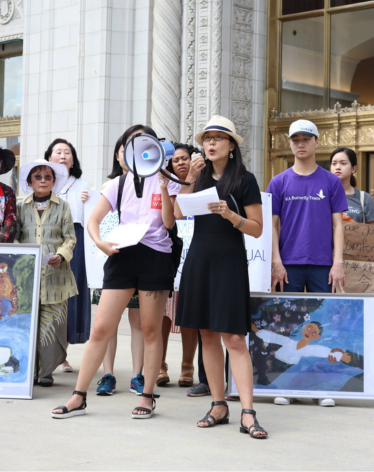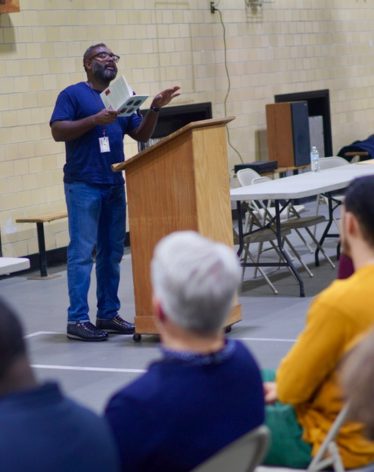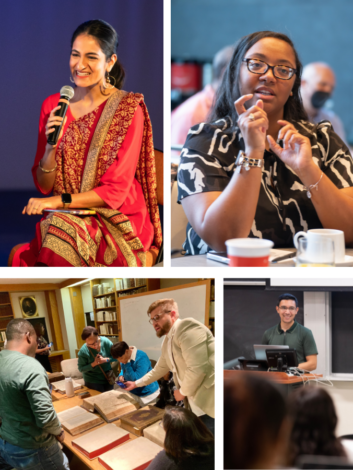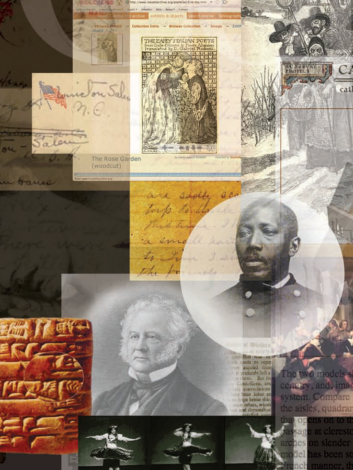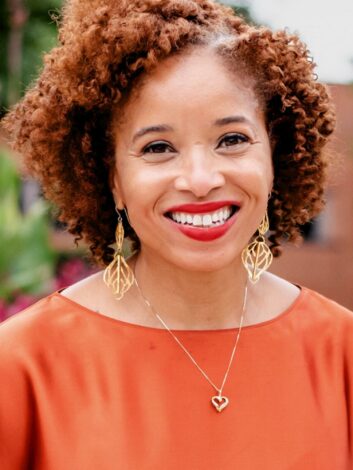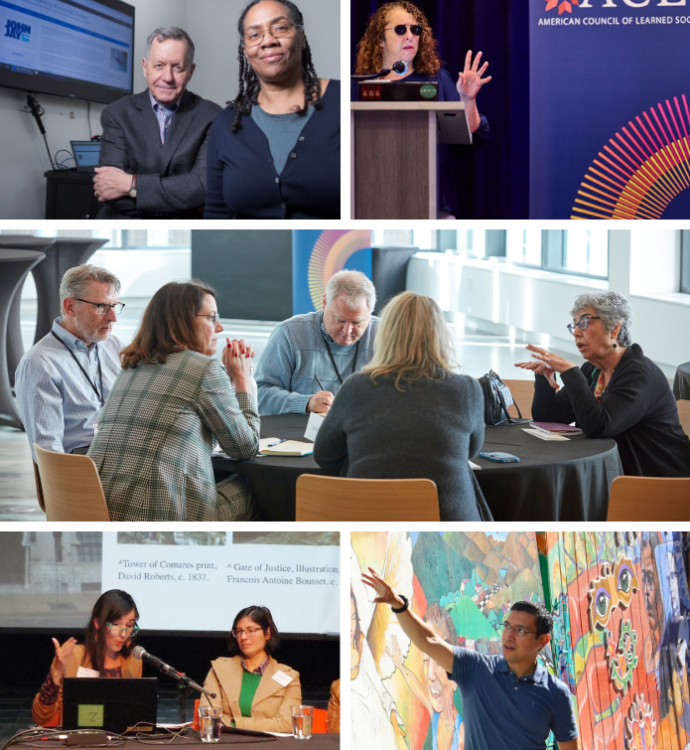
Our Impact

ACLS has played essential roles in establishing pivotal committees, convenings, and learned societies that have influenced the shape of American and international higher education over the past century. Learn more about our history.
Learned Societies: The Foundation of ACLS
The original American Council of Learned Societies first convened in September 1919 and was comprised of delegates from ten scholarly societies. The group stated its mission as “the advancement of humanistic studies in all fields of the humanities and social sciences and the maintenance and strengthening of national societies dedicated to those studies.”
Over the next century, ACLS member societies not only expanded in number to the current 81 scholarly organizations, but continued to play a critical role in advancing humanistic research, setting national standards for emerging disciplines of study, improving teaching practices and policies, and sharing the results of scholarship with the public.
Starting in the 1920s, our federation of scholarly organizations played key roles in ACLS-convened research planning committees that help strengthen long-established areas of study and establish and develop fields such as African American studies, China studies, Latin American studies, musicology, the histories of religions, the study of Native American languages, and more.
Today, ACLS member societies actively participate in regular convenings designed to explore ways to strengthen the promotion of research, education in their fields of study, and enhance engagement with scholars at all career levels and increase diversity within their ranks.
Former ACLS Vice President Steve Wheatley wrote extensively about the critical role of scholarly associations, how they operate and interact, and current challenges as they pursue their mission to advance scholarship in the ACLS Centennial Volume.
Seminal Past Fellowship and Grant Programs
ACLS began awarding fellowships and grants to individual scholars in 1926. That year, drawing on funds from one of the Rockefeller philanthropies, the ACLS Committee on Aid to Research distributed grants of up to $300 each to 21 applicants “engaged in constructive projects of research and who are in actual need of such aid and unable to obtain it from other sources.”
Since then, ACLS has sought to meet the needs of an ever-changing academy and meet new challenges faced by scholars, whether early-career, independent, established educators, those working within the administrative ranks, and those forging paths in public-facing research. These include innovative and influential programs such as:
- ACLS Grants-in-Aid (1951-1991), which provided funds for postdoctoral scholars in support of individual research. Grants-in-Aid could be used to fund travel or access to research collections and materials.
- Over two decades, the Frederick Burkhardt Residential Fellowships for Recently Tenured Scholars (1999-2020) supported nearly 275 scholars in the crucial years immediately following the granting of tenure through year-long residencies at independent research centers and universities.
- The Charles A. Ryskamp Research Fellowships (2001-2015) provided advanced assistant professors and untenured associate professors in the humanities and interpretive social sciences with time and resources to pursue their research under optimal conditions. The Ryskamp Fellowships particularly recognized those whose scholarly contributions have advanced their fields and who had well-designed and carefully developed plans for new research.The program recognized 181 outstanding scholars with fellowships.
- ACLS Digital Innovation Fellowships (2006-2015), made possible with support from the Mellon Foundation, awarded 60 fellowships to a diverse group of scholars whose projects contributed to the advancement of digital scholarship by broadening understanding of its nature and exemplifying the robust infrastructure necessary for creating further such works.
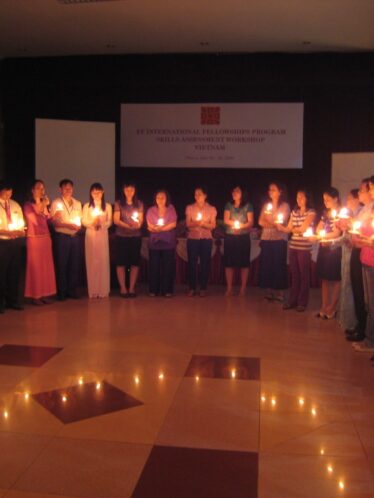
The Center supported educational and academic exchanges between Vietnam and the US through over $45 million in grants and funded nearly 2,000 fellowships, study tours, and grants.
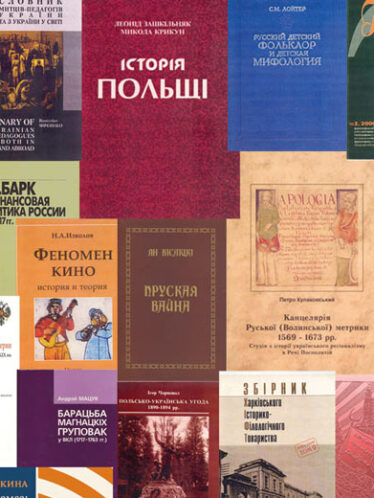
The program offered grants to humanities scholars doing exemplary work in the former Soviet Union during a time of crisis. Over 12 years, 743 awards were made for project grants and publications.
- In partnership with the Mellon Foundation, the ACLS New Faculty Fellows Program (2009-2013) allowed recent PhDs in the humanities to take up two-year positions at universities and colleges across the United States. During four competition cycles, the program supported 168 New Faculty Fellows at 50 participating universities. The program also led to the the Postdoctoral Partnership Initiative (2018-2020), aimed to utilize postdoctoral funding to advance institutional aims, such as the diversification of the faculty, while also supporting emerging scholars in responsible ways.
- ACLS Collaborative Research Fellowships (2009-2018) supported small teams of scholars collaborating intensively on a single, substantive project in the humanities and interpretive social sciences, leading to a tangible research product (such as joint print or web publications) for which the collaborators took equal credit. The program was funded by a generous grant from the Mellon Foundation. Over a decade, the program awarded fellowships to 162 scholars as part of 76 unique projects.
These postdoctoral fellowships placed nearly 200 humanities and interpretive social sciences PhDs in two-year positions in a variety of government and nonprofit organizations across the US, demonstrating the dynamic potential of the humanities PhD. The report Public Pathways: Lessons about PhD Careers from 10 Years of Mellon/ACLS Public Fellows provides insight through the lens of the program for humanities PhDs. Learn More.
The Luce/ACLS program deepened public understanding of religion by advancing innovative scholarship on religion in international contexts and by equipping individual scholars and institutions of higher education with the capacities to connect their work to journalism and the media and to engage audiences beyond the academy. Learn More.
This three-year experimental effort support doctoraled faculty as they advance publicly engaged humanities research and promoted change in doctoral education. Preparing Publicly Engaged Scholars: A Guide to Innovation in Doctoral Education draws on the experiences of these fellows and graduate students to offer insights and recommendations for publicly engaged doctoral education. Learn more.
These grants were designed to repair the damage done to publicly engaged humanities projects and programs by the social and economic disruption of the COVID-19 pandemic. The program, made possible by a grant from the National Endowment for the Humanities (NEH), resulted in 24 grants that supported community-engaged humanities programs that experienced setbacks or staffing reductions related to pandemic conditions. Learn more.
Recent Fellowships & Grant Programs
Mellon/ACLS Dissertation Completion Fellowships
Mellon/ACLS Dissertation Completion Fellowships
Through 16 cohorts, the program supported more than 1,000 doctoral students in the last year of PhD dissertation writing, who went on to make significant contributions to scholarship across all humanistic fields.
ACLS Digital Extension Grants
ACLS Digital Extension Grants
Made possible by the Mellon Foundation, the program supported 32 digital projects that advance inclusive scholarly practices and promote greater understanding of diverse human experiences through digital research.
Getty/ACLS Postdoctoral Fellowships in the History of Art
Getty/ACLS Postdoctoral Fellowships in the History of Art
These fellowships supported an academic year of research and/or writing by early-career scholars from around the world whose projects stood to make substantial and original contributions to the understanding of art and their histories.
Mellon/ACLS Community College Faculty Fellowships
Mellon/ACLS Community College Faculty Fellowships
Fellowships recognized the vital contributions to scholarship, teaching, and local communities made by humanities and interpretive social science faculty who teach at two-year institutions. In total, the program supported 110 community college faculty members across the US.
ACLS Emerging Voices Fellowships
ACLS Emerging Voices Fellowships
Launched in 2020 in response to the COVID-19 pandemic, this program supported more than 130 early-career scholars facing a challenging academic job market by placing them in positions with members of the ACLS Research University Consortium.
Mellon/ACLS Dissertation Completion Fellowships
Through 16 cohorts, the program supported more than 1,000 doctoral students in the last year of PhD dissertation writing, who went on to make significant contributions to scholarship across all humanistic fields.
ACLS Digital Extension Grants
Made possible by the Mellon Foundation, the program supported 32 digital projects that advance inclusive scholarly practices and promote greater understanding of diverse human experiences through digital research.
Getty/ACLS Postdoctoral Fellowships in the History of Art
These fellowships supported an academic year of research and/or writing by early-career scholars from around the world whose projects stood to make substantial and original contributions to the understanding of art and their histories.
Mellon/ACLS Community College Faculty Fellowships
Fellowships recognized the vital contributions to scholarship, teaching, and local communities made by humanities and interpretive social science faculty who teach at two-year institutions. In total, the program supported 110 community college faculty members across the US.
ACLS Emerging Voices Fellowships
Launched in 2020 in response to the COVID-19 pandemic, this program supported more than 130 early-career scholars facing a challenging academic job market by placing them in positions with members of the ACLS Research University Consortium.



